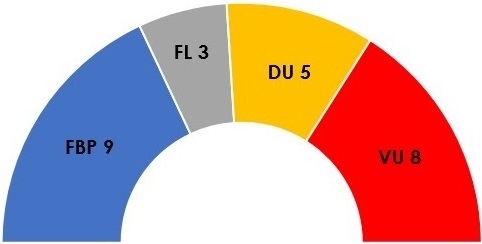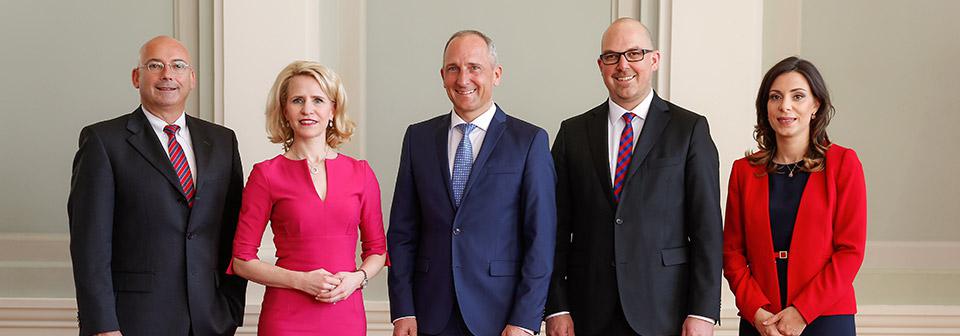On Sunday, February 5, Liechtensteiners went to the polls to elect a new Landtag (Liechtenstein's parliament). Altogether, four parties presented 71 candidates for the Landtag's 25 seats.
Collecting 35.2% of the votes, and therefore 9 seats, the Progressive Citizen's Party (Fortschrittliche Bürgerpartei, FBP) of current Prime Minister Adrian Hasler defended its position as the favored party despite a loss of 4.8% compared to the elections in 2013. The Patriotic Union (Vaterländische Union, VU) made a gain of .2%, coming in second with a total of 33.7% of the votes (8 seats). The FBP and the VU will therefore maintain a grand coalition formed after the 2013 elections. The third-strongest party remained the Independents (Die Unabhängigen, DU) with 18.4% (+3.1%, 5 seats). Completing the parliament is the Free List (Freie Liste, FL) with 12.6% (+1.5%, 3 seats).

The five-member government of Liechtenstein is traditionally composed of three members (including the Prime Minister) of the senior coalition partner and two (including the Deputy PM) from the junior partner. This trend was continued following the February elections, as coalition talks between the FBP and the VU resulted in an agreement at the end of March to continue governing together. The FBP’s Adrian Hasler will remain Prime Minister, and his party colleagues Aurelia Frick and Mauro Pedrazzini retain their spots in the cabinet as well. The VU, on the other hand, sends two new members into the ruling government, with Daniel Risch taking over the role of Deputy Prime Minister and Dominique Gantenbein securing a spot as well.

Each cabinet member heads a ministry, with Hasler acting as Finance Minister, Frick concurrently as Foreign and Justice Minister, Pedrazzini as Minister of Society and Health, Risch as Minister of Infrastructure, the Economy, and Sport, and Gantenbein as Interior Minister, as well as Minister of Education and the Environment.
At the beginning of the new legislative period, H.S.H. Hereditary Prince Alois of Liechtenstein opened the parliament on March 30 with his customary speech from the throne. He asserted that, after eight years of tough budget cuts and government reforms, the country now “finds itself in a good position” to “commence a new phase of future-oriented action.” Nevertheless, he noted that “worldwide…trends towards political polarization, rising geopolitical tensions, uncontrolled streams of migrants, and unsolved environmental problems” remain causes for concern for the new government. He called on parliamentarians to use the coming legislative period to better understand these challenges, and to develop sustainable solutions to them with an eye towards the future, while always emphasizing input from the populace.
Following the speech, the Landtag went about its first order of business, electing a president of the assembly, who will act as the body’s speaker. Albert Frick of the FBP was reelected to this position with 18 of 25 votes, and Gunilla Marxer-Kranz of the VU attained 24 of 25 votes to become vice-president of the chamber.
